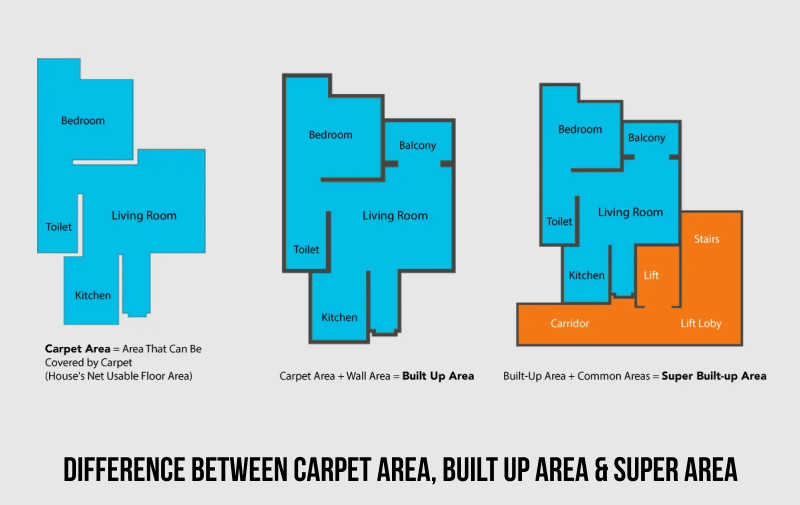Force Majeure for Rent and Lease Agreement in India
Force Majeure for Rent and Lease Agreement
On 24th March 2020 when PM Narendra Modi announced the nationwide lockdown to prevent the spread of coronavirus in India, the entire population was asked to stay indoors. People have not been able to go to work, many have lost their jobs, companies have cut salaries, there has been a big drop in the income of the self-employed. This is definitely not a good time to entertain.
The lockdown has hurt the economy. People’s ability to spend money is no longer the same as it used to be. This has also had a significant impact on the landlord-tenant relationship. While tenants’ ability to pay rent has been unfavorably affected, the finance of landlords has also gone awry. Tenants are demanding an amnesty of rent because their income has been affected.
Tenants are expected to apply the force majeure as legal protection against the fulfillment of their contractual commitments. Statutory bodies such as RERA in many states have had to focus on the epidemic as a force majeure.
What is Force Majeure Clause?
Force majeure clauses are contractual clauses that change individuals; obligations or liabilities under a contract when an unusual event or circumstance beyond their control limits one or all of the parties from fulfilling those commitments.
In most cases these allow escalation of dates for escrow or compensation due to ‘unforeseen circumstances’ and if the unforeseen circumstances point to the dates being missed there is an exit clause that allows either party to be out of the contract.
However, in practical life, most of the Force Majeure clauses do not excuse a party’s non-performance completely; suspend it only for the duration of the force majeure time. In India, the force majeure under any circumstances is governed by the Rule of Contract Act 1872, rather than the general concepts of the law of force majeure. It is commonly used to limit the shield of this clause in time-sensitive contracts where a party does not take steps to restrict or limit the effects of external interference when they become a possibility or when they actually occur.
1) What is not covered by the “Force Majeure”?
Force Major is usually aimed to involve events beyond the party’s reasonable control and therefore does not cover:
- Any consequences of the party’s negligence or wrongdoing adversely affect the ability of the party to perform its obligations.
- Any outcomes of normal and natural consequences of external forces.
- Any circumstances that are especially considered in the contract if the contract for an external event especially allows for cancellation in the event of rain.
2) What is the use of the clause “Force Majeure” in rental agreements for commercial lease contracts?
The Government of India requested the owners not to demand rent or to extend the time for the tenants to pay the rent. But, is it legally acceptable? We need to analyze it in depth from a legal point of view.
Typically, in the case of a commercial lease, the provisions of this clause either provide a mechanism to defer or suspend the performance of a duty under the lease due to unforeseen circumstances that are beyond the control of either party. A clause of the force majeure would provide a means for allocating risk between parties involved in commercial leasing.
On the other hand, if there is no provision in a commercial lease, the party inciting the loss due to events out of control will have no claim against such delay or non-performance; Yet, a justifiable claim can be made for them under the doctrine of frustration or impossibility.
If the contract contains a clause giving for some kind of exemption or suspension of rent, only the tenant can claim the suspension.
3) What does the doctrine of Frustration under Contract Act 1872 say?
Section 58 states that “an agreement to do the impossible in itself is void”. Contact with a person who is restricted or unlawful after an event that is impossible or unlawful cannot be void until the act itself becomes impossible or unlawful.
4) Factors for invoking the force majeure are:
- There must be a valid contract in existence between the parties;
- The parties are yet to be contacted; And
- The contract made thereafter becomes impossible to perform consequently;
5) Does the clause in “Force Majeure” give a waiver or suspension of payment under a rent agreement or lease?
- Contrary to the provisions of section 57 which results in the dissolution of the agreement upon discharge of a frivolous event under section 108 (e), when the lessee elects to void the lease.
- The burden of proving either event falls on the lessee who must establish that either a portion of the property is destroyed or sufficiently unfit for use by the lessee.
- If a lessee is able to show that the conditions provided in 108 (e) have been met, then refused to pay rent to the lessee will not be sufficient to avoid payment obligations. He should give notice of his intention to implement his option to void the lease in terms of 108 (e). Thus, if the lessee fails to hand over the property, he will be liable to pay the rent.
- In Alanduriyapar Koli in Chitrakadu vs. T.S.A. Hamid (1962) SCC Mad 102 case, where the tenant claimed suspension of rent due to two cyclones that have severely affected his business, the Madras High Court rejected his argument that the cyclone caused a business Temporary suspension may not disappoint 5 yrs Lease Agreement.
- Accordingly, it can be said that although the epidemic has caused huge financial stress among various sections of society, neither the global epidemic nor the lockdown has destroyed property, nor has it allowed anyone to use it in business disqualified, thus it cannot be considered anywhere. It may not be possible for a tenant to refuse commercial lease payments unless the suspension of the lease agreement and the lease agreement provides for the dismissal of payment obligations.
- Secondly, the rent agreement is made under the Contract Act 1872 may demand tenants for payment exemption or referral from the landlords but only by negotiation or mutual consent and in the same way the tenant is discharged from his liability without to shut the shop forcefully.
6) What Is The Way Forward For Lessees?
Considering that the lessees do not have the right to rent or suspend the exemption in the absence of a clear Force Majeure clause supporting the waiver/suspension, the lessee has notice to their respective requesting waiver or suspension There will be no option but to issue. Lease rentals due to the unprecedented state of a complete shutdown of business activities by the Government of India. As long as the government does not issue any exemptions from rent payments in the near future, cordial negotiations to suspend landowners’ exemptions or lease rents are the best way for businesses that have clear support in their lease agreements Force Majeure Provisions are not. A unilateral decision not to pay rent may result in the termination of the lease agreement by the lessee for breach of agreed payment terms and therefore, the best way to proceed to an amicable discussion between the parties.
In Recent Case, The Delhi High Court Rejected Khan Market Tenants’ Plea
Factual Background
The tenants run a shoe store at Khan Market, New Delhi (rented premises), which was leased for commercial purposes through a lease deed at the rate of Rs 300/month on 01 February 1975.
In 2008, the landlord filed an eviction petition under section 14 (1) (e) of the Delhi Rent Control Act, 1958 (Rent Control Act), a decree of eviction was passed by the Senior Judge-cum-Rent Controller on 18 March 2017. The tenants challenged the eviction order before the Rent Control Tribunal, which was dismissed by order dated 18 September 2017.
Afterward, a petition was filed before the High Court challenging the dismissal order by the tenants, in which the High Court vide its order dated 25 September 2017, granted an interim order stay of the eviction order, subject to the tenants being paid Rs 3,50,000/month.
Due to the outbreak of COVID-19, an application seeking suspension of rent by tenants during the lockdown period was moved. Tenants claimed that the lockdown had completely disrupted all business activities, including the business activities of tenants. It was pleaded that the lockdown was a major incident of force majeure, which was beyond the control of the tenants and, therefore, the tenants appealed for exemption of monthly rent, or partial relief in the context of suspension, postponement or partial payment of the rent amount.
The Delhi High Court has clarified that if there is a ‘force majeure’ clause in the rent contract for any exemption or suspension of the rent, only the tenant can claim it even in circumstances like an epidemic outbreak like the present COVID-19 outbreak.
Justice Prathiba M. Singh also said that the question of waiver, suspension, or any waiver in rental payments would be handled differently for each category of agreements.
‘Force Majeure’ is defined by Black’s Law Dictionary as “an event or effect that can be neither anticipated nor controlled”, the High Court said. The term includes both acts of nature such as floods and hurricanes, and acts of people such as riots, strikes, and wars.
If, however, there is no contract or if no special force majeure clause is found, the issues will have to be determined on the basis of the applicable law, the court said, rent payments rejecting the petition of Khan Market tenants.
The court said that the petitioning tenants are also not ‘lesser’, as the eviction decree has already been passed against them.
In a 22-page judgment, Justice Singh said that the question of whether the lockdown would allow tenants to claim waiver or exemption from the payment of rent or is bound to arise in thousands of cases across the country.
Justice Singh also said that some broad parameters can be kept in mind. “In circumstances like an epidemic outbreak, like the current COVID-19 outbreak, on the basis of which tenants/lessee or other similarly situated parties may seek a waiver or non-payment of monthly amounts, whose contract has force majeure clause. Justice Singh said that would be governed by section 32 of the Indian Contract Act, 1872.
In the absence of a contract, the tenant can usually seek suspension of rent by enforcing the court’s equitable jurisdiction due to the temporary use of the premises.
The court further said, “The question of whether the suspension of rent should be approved will depend on the facts and circumstances of each case.”







